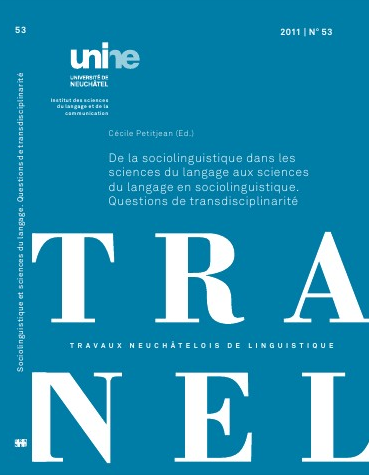Vers de nouvelles approches théoriques du langage et du plurilinguisme
DOI :
https://doi.org/10.26034/tranel.2011.2778Résumé
Atemporal and context-free views of langue have been replaced by models focusing on context-bounded processes of sense-making and a strong determination of linguistic forms by the socio-cognitive functions of language. However, the view of separate, closed rule systems for each single language still prevails. Based on Hopper’s emergent grammar and socio-constructivist models of language acquisition, we argue, firstly, that language is a praxis rather than a structure, i.e. an open, dynamic and complex system that undergoes change each time it is used. We also strongly question the endoxa that different languages are bound to geographically and politically separate spaces. Highly polyglossic societies are the rule, where plurilingual repertoires represent resources upon which interlocutors can draw to solve their communicative tasks either by sticking to one language at a time or by blended combinations or multilanguaging. It is well known that such mixing follows norms which represent a multilingual emergent grammar. Finally, we call for language theories to explain multilanguaging as one of several forms of normal language behaviour.Téléchargements
Publié-e
01-01-2011
Comment citer
Lüdi, G. (2011). Vers de nouvelles approches théoriques du langage et du plurilinguisme. Travaux neuchâtelois De Linguistique, (53), 47–64. https://doi.org/10.26034/tranel.2011.2778
Numéro
Rubrique
Article thématique


